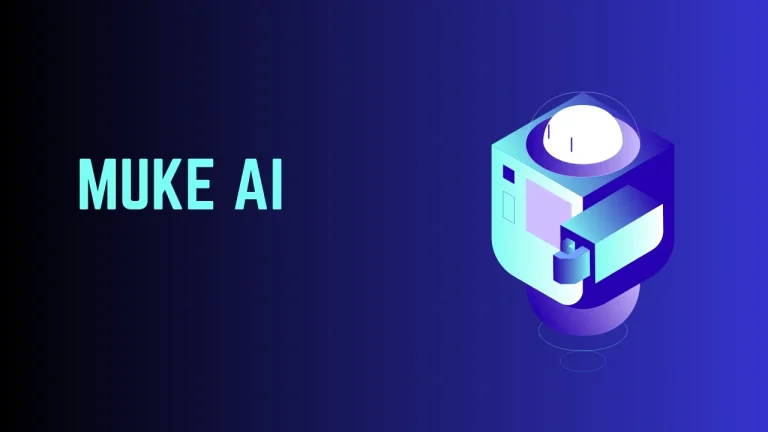Which Part of the Drug Discovery Life Cycle can Quantum Computing Impact the Most?
Introduction
In the fast-evolving landscape of scientific innovation, quantum computing has emerged as a powerful force with the potential to revolutionize numerous fields. One area where quantum computing is poised to make a profound impact is drug discovery. This article delves into the heart of this transformation, exploring which part of the drug discovery life cycle can quantum computing impact the most?
Quantum Simulations: Unveiling Molecular Mysteries
The drug discovery journey often begins with understanding molecular structures and interactions. Quantum simulations, a cornerstone of quantum computing, offer an exciting new way to illuminate the intricacies of molecules. Unlike classical computers, quantum computers can handle complex quantum mechanical phenomena, enabling us to explore molecular behavior with unparalleled accuracy. This capability unlocks new dimensions in drug discovery, where precise insights into molecular dynamics and reactions pave the way for better drug designs.
Molecular Modeling and Quantum Computing: A Synergistic Partnership
Molecular modeling lies at the heart of drug development, guiding scientists in predicting how potential drug candidates will interact with biological targets. Quantum computing injects a dose of precision into this process. Traditional methods often simplify complex quantum phenomena, leading to approximations. Quantum computing, on the other hand, performs calculations that mirror nature’s quantum behavior. This promises to refine our understanding of molecular interactions, enabling more targeted and effective drug designs.
Quantum Chemistry Illuminating Drug Design
Quantum chemistry plays a pivotal role in drug design by elucidating the energetics of chemical reactions. Quantum computers, equipped with quantum algorithms, tackle complex computations that were previously insurmountable. These algorithms can predict molecular properties and reaction pathways with astonishing accuracy. Such insights empower researchers to optimize drug candidates for enhanced efficacy and reduced side effects, accelerating the journey from lab to patient.
Revolutionizing Drug Screening Through Quantum Enhancement
Efficient drug screening is crucial for identifying promising candidates from vast molecular libraries. Quantum-enhanced algorithms supercharge this process. Quantum computing’s ability to process massive datasets in parallel expedites virtual screening, identifying potential hits with unprecedented speed. This leap in efficiency not only saves time but also unlocks the potential to discover novel drug candidates that might have been overlooked using classical methods.
Quantum Machine Learning: A Prescription for Success
Machine learning’s integration with quantum computing amplifies its power exponentially. Quantum machine learning algorithms harness quantum phenomena to enhance pattern recognition and data analysis. This fusion of technologies promises to transform how we predict drug-target interactions, optimize molecular structures, and classify compounds. The result: faster identification of promising drug candidates and a substantial reduction in trial and error.
Quantum-Enabled Target Identification: Precision Redefined
Identifying suitable drug targets is a pivotal phase of drug discovery. Quantum computing, through its exceptional processing capabilities, brings an unprecedented level of precision to this process. Quantum simulations allow researchers to model complex biological systems more accurately, uncovering subtle interactions that influence disease progression. This fine-tuned understanding opens doors to novel therapies and treatments that target diseases at their roots.
Quantum Bioinformatics: A Map to Drug Research’s Future
Bioinformatics fuels drug discovery by analyzing biological data to uncover insights. Quantum computing introduces a paradigm shift in this arena. Quantum bioinformatics algorithms navigate through vast biological datasets swiftly, identifying crucial biomarkers, unraveling intricate genetic pathways, and predicting drug responses. This quantum-driven approach accelerates our understanding of diseases and paves the way for personalized medicine breakthroughs.
Quantum Computing in Pharmacology: Redefining Possibilities
Pharmacology, the study of how drugs interact with living organisms, stands to gain significantly from quantum computing’s prowess. Quantum simulations of drug metabolism and absorption offer a precise lens into how drugs behave in the body. This knowledge informs drug dosages and reduces adverse effects, resulting in safer and more effective treatments.
Challenges and Future Prospects
While the potential of quantum computing in drug discovery is immense, challenges persist. Quantum hardware’s sensitivity to environmental noise and the need for error correction are among the hurdles. Nevertheless, quantum computing’s rapid evolution and increasing accessibility hint at a future where these challenges are overcome.
Quantum-Driven Drug Synthesis: Precision Medicine on the Horizon
Beyond the early stages of drug discovery, quantum computing’s influence extends to drug synthesis – the process of creating drug molecules in the lab. Quantum algorithms can predict optimal reaction pathways with exceptional accuracy, offering chemists invaluable insights into synthesizing complex molecules efficiently. This quantum-driven approach holds the promise of streamlining the synthesis of novel drug candidates, potentially accelerating the development of life-saving treatments.
Quantum-Enhanced Binding Affinity Prediction: A Leap in Drug Efficacy
Understanding the strength of interactions between drug molecules and their target proteins is crucial for assessing drug efficacy. Quantum computing steps in with its remarkable ability to simulate these interactions accurately. By incorporating quantum mechanics into binding affinity prediction, scientists can fine-tune drug molecules for optimal binding, ultimately leading to more potent and effective drugs.
Quantum-Assisted Molecular Docking: Fitting Pieces Together
Molecular docking involves predicting how a drug molecule will bind to its target protein. Quantum computing’s precision and ability to handle complex calculations shine in this task. Quantum-assisted molecular docking algorithms provide deeper insights into binding orientations, enabling researchers to identify potential drug candidates that might have been overlooked using classical methods.
Quantum Algorithms for Compound Library Searches: Efficiency Amplified
The vastness of compound libraries poses a challenge in drug discovery. Quantum algorithms designed for efficient search and optimization are game-changers in this regard. Quantum computing’s parallel processing capabilities enable rapid exploration of the chemical space, leading to the identification of promising drug candidates in a fraction of the time required by classical methods.
Quantum Computing’s Promising Future in Drug Discovery
The potential impact of quantum computing on drug discovery is undeniable, but it’s also important to recognize the collaborative efforts required to fully realize this potential. As quantum hardware continues to evolve and mature, collaboration between quantum physicists, computational chemists, and pharmaceutical researchers becomes increasingly crucial.
Frequently Asked Questions
1. How can quantum computing revolutionize drug discovery?
Quantum computing’s unique ability to handle quantum mechanical phenomena allows for more accurate simulations of molecular behavior, leading to better drug designs and accelerated drug discovery processes.
2. Can quantum computing improve molecular modeling for drug development?
Absolutely. Quantum simulations provide a precise understanding of molecular dynamics and interactions, enhancing molecular modeling accuracy and guiding effective drug development.
3. Are there successful examples of quantum chemistry in drug design?
Yes, quantum chemistry has aided in predicting molecular properties and reaction pathways, contributing to the optimization of drug candidates for enhanced efficacy and reduced side effects.
4. How does quantum computing enhance drug screening processes?
Quantum-enhanced algorithms enable faster and more efficient virtual screening of potential drug candidates, leading to quicker identification of promising molecules.
5. What are the benefits of using quantum machine learning in drug discovery?
Quantum machine learning enhances pattern recognition and data analysis, improving drug-target interaction prediction, compound classification, and molecular optimization.
6. Can quantum computing accurately predict molecular behavior?
Yes, quantum simulations and algorithms can predict molecular properties and behaviors more accurately than classical methods, aiding in various stages of drug discovery.
7. How might quantum computing impact personalized medicine through drug discovery?
Quantum computing’s ability to model complex biological systems and predict drug responses could lead to personalized treatment approaches, tailoring therapies to individual patients.
8. Are pharmaceutical companies adopting quantum computing for research?
Yes, several pharmaceutical companies are exploring quantum computing’s potential for drug discovery, recognizing its transformative impact on the industry.
Also Read: What is a Current Concern Regarding the Advancement of Quantum Computing?
Conclusion: A Quantum Leap Towards Future Discoveries
The confluence of quantum computing and drug discovery marks an exciting era in scientific advancement. With its ability to illuminate molecular mysteries, refine drug designs, accelerate drug screening, and optimize various phases of drug development, quantum computing holds the promise of breakthroughs that were once considered beyond reach. As researchers continue to embrace this cutting-edge technology, we stand on the precipice of a new era in medicine – one where quantum leaps in drug discovery translate into improved treatments and better lives for patients around the world.







